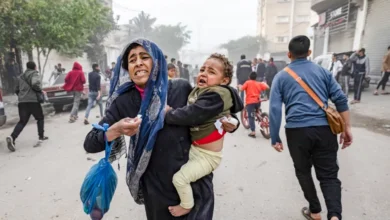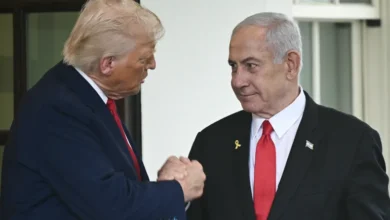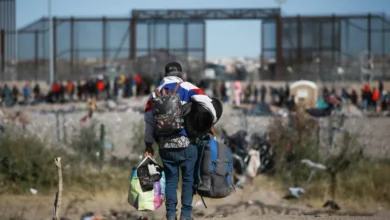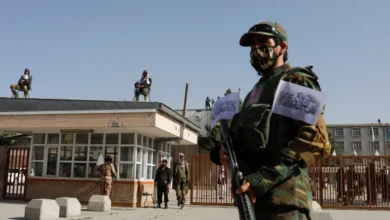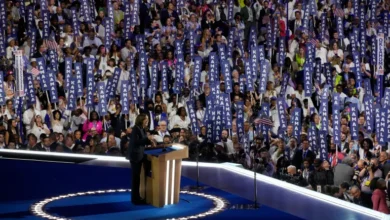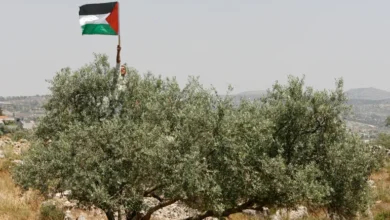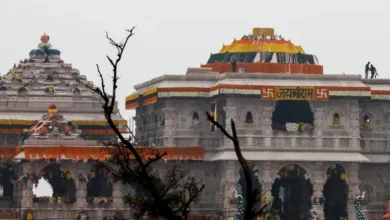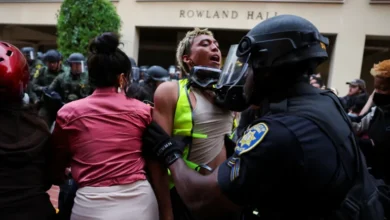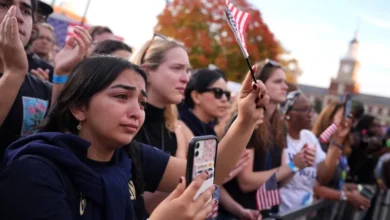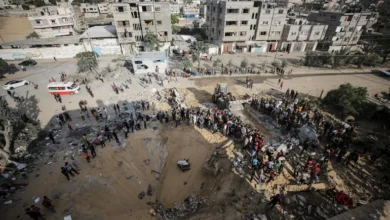What’s in a name? Resistance to genocide
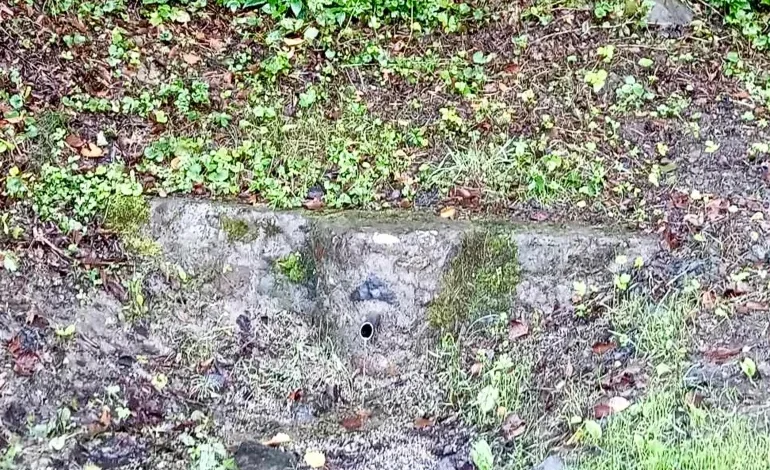
Shakespeare left us the much-quoted adage about the relationship between things and names. In his tragedy Romeo and Juliet, his character Juliet complains that her family won’t accept her lover Romeo and boils it down to his name: “What’s in a name? That which we call a rose / By any other name would smell as sweet.”
In essence, Shakespeare gives us the theory of the arbitrariness of signs long before the Swiss linguist Ferdinand de Saussure put it into writing. And, I do not disagree. But there are times when our sheer survival as individuals and communities seems to hinge on names. Like in the time of genocide.
The erasure of names inevitably accompanies genocide, as it did in my homeland Bosnia in the 1990s. When a force burns libraries and razes religious buildings, when it attempts to erase the very history of a people, it does not want to just get rid of their physical bodies. It wants to create oblivion of origins.
For me, the greatest symbol of this erasure is the water fountain my great-grandfather Fejzo Tuzlić made in an unremarkable spot mid-way between his native town Kotor Varoš and my hometown Banja Luka. Both towns lie in what is now called Republika Srpska, an entity which covers practically half the country and which the Bosnian-Serb nationalists got as a reward for their genocidal project in the 1990s.
You won’t find this spring in books or Google Maps, neither under its old name “Fejzina Česma” nor its new name, Zmajevac (Dragon’s Place). Its changing name symbolises everything we went through in the war, which we so stubbornly hang on to.
Why did mother’s grandfather Fejzo, a Muslim man from an idyllic little town with an old Ottoman fortress overlooking incredible waterfalls, decide to build a water fountain in the first place? Traditionally, among Muslims, there is a belief that one of the ways to keep amassing good deeds even after your death is to leave a public good, a “khayr”, something that will benefit all people. It is what we call a “waqf”.
One typical public good is the “khayr fountain”, often built by a main road so travellers and their animals could quench their thirst. When I was a kid, we would always stop at Fejzina Česma on our way to visit relatives. It was not because we were thirsty. It was my mother’s ritual.
I do not know whether Fejzo dug the spring or just found it and fixed the place as a convenient stop for travellers in a time when people did not just swish by in their cars but needed to rest and water their horse or cattle. All people. All ethnicities. All religions.
After decades of use, when Fejzina Česma needed repair, it was Fejzo’s son Asim who fixed it. After the war, Asim’s son, my uncle, discovered someone had changed its name to “Zmajevac” and he put a new plaque with his father’s name instead: Asim Tuzlić.
In my view, even that name is not right as it was not properly anchored into the local lingo. Fejzina Česma was. Still, someone was bothered by the Muslim name and carved “Zmajevac” into the stone in Cyrillic letters. “Zmajevac” is the name of nearby ruins from the late Middle Ages, but it has nothing to do with the fountain in people’s memory.
According to the Muslim faith, it does not matter what the place is called. In this sense, Juliet is right on that theological level. A spring by any other name will quench thirst all the same. Water does not belong to anyone. Fejzina Česma was an effort to make it accessible and therefore every drop drank by man or beast as long as it exists will be a coin in Fejzo’s chest with which he will hopefully buy a place in paradise.
We refugees, who only visit our motherland every summer, use the old names by instinct, or maybe even out of “inat” (spite). All the new names are foreign to us, and I imagine, at some level, they must feel foreign to many Serbs who use them because those names are nationalist, toxic names that did not grow out of that earth there, those rivers there, those dense woods there.
The new Serbian-sounding names, as well as the very adjective “Serbian”, which is attached to every nook and cranny, must appear weird to most people because there is no country on earth with original names that can bear so many nationalist tags.
Why would a random bridge in the small town of Čelinac be called the Bridge of Serbia and be adorned with a Serbian flag? Why would anything be called by names of fascists and war criminals from the not-so-distant past? Why would my street be called after a place in Serbia and not after the World War II partisan hero Ševala Hadžić, a Bosniak woman who fought the Nazis? My house has both the old and the new street name sign and the new one has already faded while the white writing on the original blue plate shines so bright.
Of course, Bosnia is not unique in this pursuit of erasure through renaming. There’s practically no place on earth where erasure has not been carried out at some point in history: new names inscribed on the palimpsest of the land.
Consider the historical changes in the names of the holy land, that place which so dominates our global consciousness right now. We cannot avoid following the parallel war over names such as “Palestine” and local places within the territories of Israel that is taking place in real and virtual spaces, even on the international stage. If we are to dig into its background, we may learn that the state of Israel established a committee in 1949 whose task was not simply to recover ancient Hebrew names if there were any, but also to invent new ones.
Israel’s first Prime Minister David Ben Gurion made the directive clear, “We are obliged to remove the Arabic names for reasons of state. Just as we do not recognise the Arabs’ political proprietorship of the land, so also do we not recognise their spiritual proprietorship and their names”.
I sometimes try to pity the bureaucrats tasked with finding new names for everything. That is a lot of things. So many things. Those are projects one can get stuck in and have to hand them down to new generations.
Did they feel proud and creative in this hyper-erasure? If only they had today’s artificial intelligence tools and could get a machine do it. They had to toil, write on paper, stamp documents, file them, and store them well in their new dungeons. Human labour. There is no genocide without it. Only machines will not do.
So no, some roses would not smell as sweet. Romeo would not be as sweet to Juliet if his heritage was erased and he was assimilated into her family. The meaning and power of their love depends on their names. Their love is built on the family feud.
Unlike the hopelessly romantic Romeo who thinks he can just call himself “love” and get off unscathed, we know better. I am sorry Juliet, but we cannot “take thee at thy word”. History has been written onto our bodies, and it might vanish with our bodies. For us who fight for the “never again to anyone”, who ignore new road signs and find our bearings by weak memories, our spirit and our love hang on the thread of some old names.
